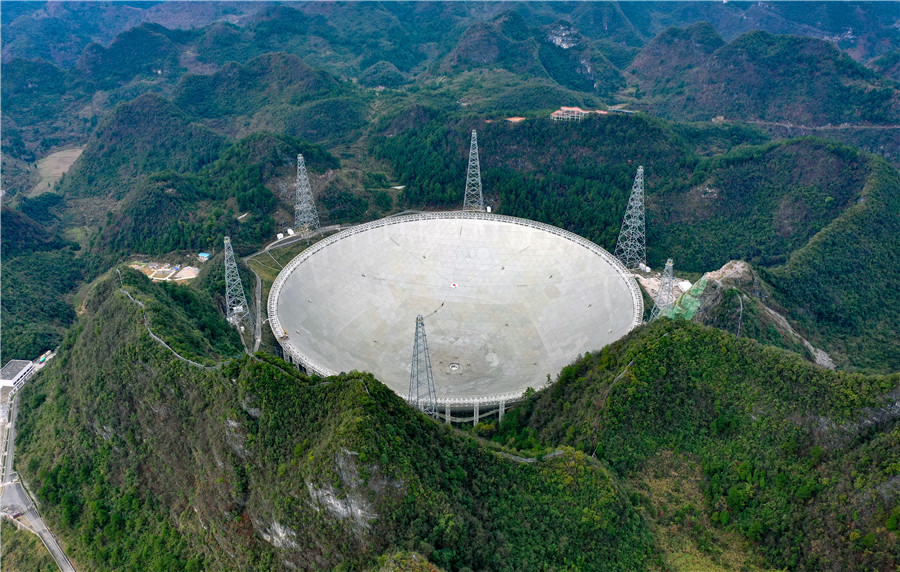FAST radio telescope passes test, starts work


FAST has also helped scientists obtain valuable data, including the discovery of 102 confirmed pulsars.
Now that it has passed evaluation, Li said it will begin a systematic survey of the universe this year.
"FAST has unique advantages in its observation capabilities. It can map out the most important baryonic matter in the universe, namely atomic hydrogen, which is much more massive than all the visible stars and galaxies combined," he said.
One of the focuses will be the Milky Way and M31, the nearest spiral galaxy to it. The scientific results will help scientists explain the formation of galaxies, the composition of the gases, and the processes and mechanisms of the origin of stars and planets such as the sun and Earth.
Although FAST already excels in discovering pulsars with its speed and efficiency, Li said that is just the beginning of a more systematic study of pulsars-dead neutron stars that emit beams of electromagnetic radiation.
At the evaluation meeting on Saturday, the State assessment committee said the FAST project had achieved a number of innovations, significantly improved China's research ability in radio astronomy, promoted innovation of related technologies and produced large social and economic benefits.
"The comprehensive performance of FAST has reached a top level internationally, which is of great significance in promoting major astronomical breakthroughs in China," the committee said.
























